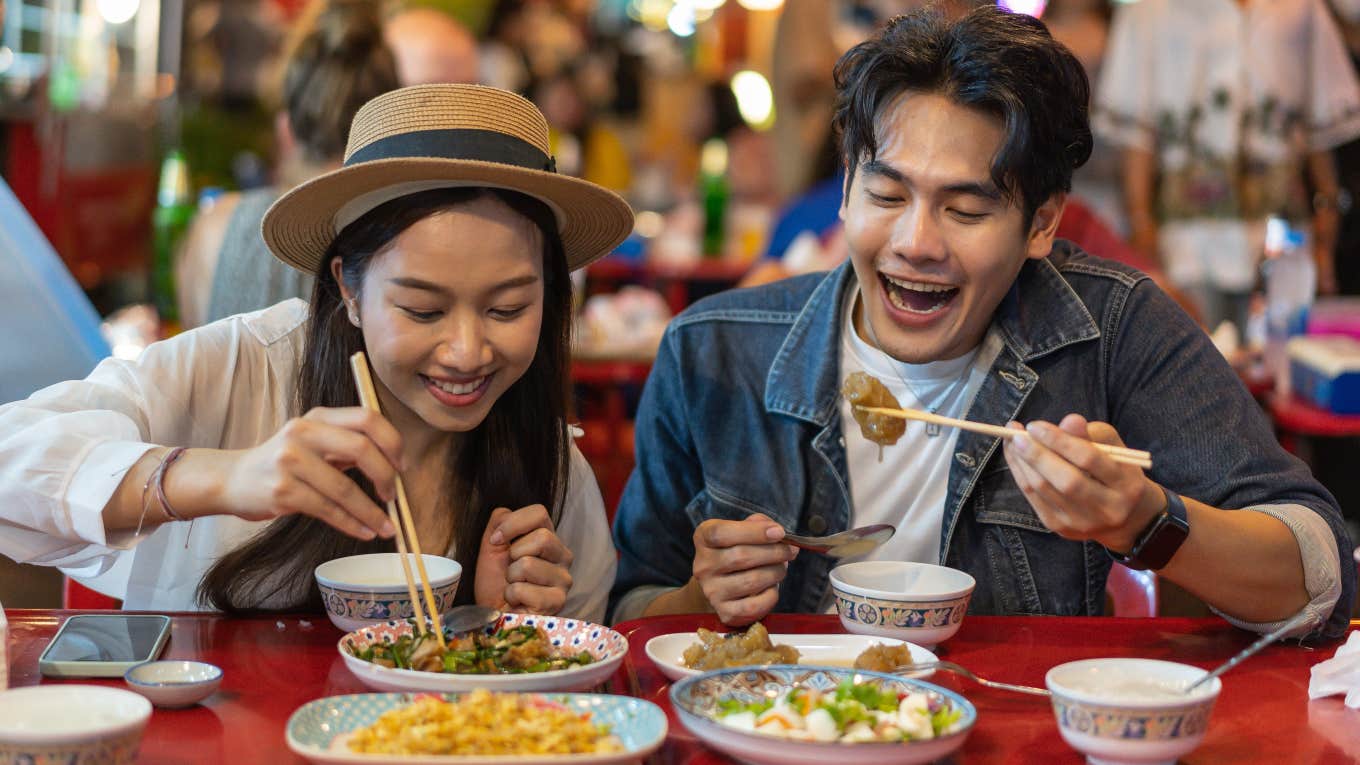Woman Shares Why It's Harder To Be A Plus-Size Person In Japan Than In America
"It surprisingly feels worse than it does to be a plus-sized person in America.”
 Twinsterphoto / Shutterstock
Twinsterphoto / Shutterstock An American woman traveling in Japan found the transition to be especially difficult for an unexpected reason.
The plus-size woman explained that public transportation in Japan is not built for larger bodies to fit comfortably.
The woman was asked by Tokyo native, Leo Hirata, how it felt to be a plus-sized person in Japan. She admitted that "it surprisingly feels worse than it does to be a plus-sized person in America.”
“We tend to pack more muscle and more mass than Asian people, particularly Japanese people,” she explained.
She added that on certain buses, she is unable to sit in the seats since she cannot fit into them. Even most airlines in Japan do not have seats that can accommodate plus-size people.
When Hirata asked the woman how she deals with being a plus-sized woman in Japan, she said that she usually tries to avoid public transport when possible.
“I will take the Shinkansen instead,” she said. The Shinkansen is a high-speed network of railways in Japan known for its comfortability and space. The seats on the Shinkansen are typically bigger than what you’d find on a standard train.
When the woman has no choice but to use public transport with small seats, she said that she just has to “suck it up.”
Like the woman, many plus-sized individuals traveling to Japan from America are in for a culture shock when they realize just how much of the country is built for petite people. And this doesn't just come into play for public transportation — even the clothes sold in most stores are catered to smaller sizes.
It is important to consider the social factors in Japan that could explain why they are less accommodating toward plus-size people.
As opposed to the United States, where 42% of people are considered obese, only 4.2% of Japanese individuals are overweight. This could be due to the small portion sizes Asian countries consume compared to those in the United States.
“The Japanese cuisine’s [core] feature is simplicity. For us, the simpler, the better,” Tokyo College of Sushi & Washoku President Masaru Watanabe told TIME.
People living in Japan are often served small portions consisting of vegetables, soup, and protein and are taught from an early age to eat until they feel 80% full. It allows their bodies time to process if they’ve eaten enough in one sitting.
Japanese health officials also often stress the importance of having a healthy and ideal waist size. In fact, in 2008, when obesity was rising in the country, the “Metabo Law” was introduced and implemented to reduce obesity.
Per the Metabo Law, every workplace and local government in Japan is required to bring in a team of doctors and nurses to measure the waistlines of those between the ages of 40 and 74. If the measurements exceed a certain level, the individual is referred to counseling, where they are provided with tips for a healthier lifestyle. Companies that have employees with larger waistlines can face fines.
Exercise and fitness are also a crucial part of the Japanese lifestyle, and keep people within a healthy weight range. Even when they are well into their 80s and 90s, people living in Japan often kick their morning off with a morning walk or a yoga session.
You will often see groups of elderly people exercising together as the sun rises. Meanwhile, in the United States, you are more likely to see people lining up outside of McDonald’s for their hotcakes and hashbrowns.
Since obesity rates are decreasing by the day in Japan, public spaces are becoming less and less likely to accommodate plus-sized individuals.
However, if you were to travel to any country, there would likely be several things that would give you a culture shock, whether it be the food, the greetings, or even how the toilets are designed! No country is 100% alike, and when traveling out of our territory, we must learn to adapt no matter how strange or uncomfortable it may be.
Megan Quinn is a writer at YourTango who covers entertainment and news, self, love, and relationships.

